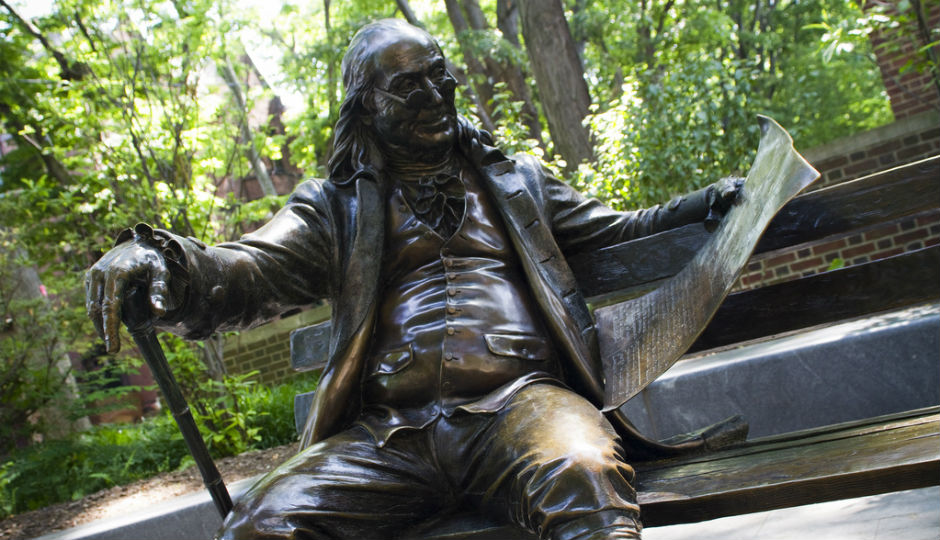Penn Dropping Essay Portion of SAT Test

Photo | Scott Spitzer
Editor’s note: The original headline has been changed to reflect that Penn won’t require the essay portion of the SAT Writing test.
Remember way back in — oh, has it been 10 years already? — 2005, when the College Board created an uproar by adding a new essay-writing component to its longstanding Verbal and Math SAT tests? A spokeswoman for the Board at the time said the move was made in response to demand from colleges and businesses, who hoped that “writing will become more of a priority across the United States.”
Now the University of Pennsylvania is creating its own little uproar by announcing that as of next year, it will no longer require applicants to submit scores from the essay sections of either the SAT or the ACT. Dean of Admissions Eric Furda told the Chronicle of Higher Education that the decision was one that had been “carefully considered”:
Our internal analysis as well as a review of the extensive research provided by the College Board showed that the essay component of the SAT was the least-predictive element of the overall writing section of the SAT.
Furda also noted that the College Board itself plans to make the essay section optional for all takers sometime in the future. There have long been complaints about how the essays, which kids pen by hand in 25 minutes, are graded. A few years back, an MIT prof notoriously taught students to game the section by, um, making shit up. And College Board president David Coleman wasn’t a fan. A number of colleges have blithely ignored Writing section scores in evaluating applicants all along.
Generally, there’s been less emphasis given to standardized test scores by colleges in recent years; last year, Temple and Bryn Mawr both announced they would no longer require that applicants take the SAT or ACT. The first long-term study of the tests’ predictive power showed no difference in grades or graduation rates among students at three dozen “test-optional” schools between those who submitted test scores and those who did not. The tests are expensive, though, and some say their content itself discriminates against minority and low-income takers. Also? The Writing component demands that students write legibly with a number-two pencil, something young people today are increasingly unable to do. And the tests require them to unplug from the Internet for, like, a whole three hours and 45 minutes, which is way too long for millennials to go without a fix.
Still, the SAT remains a rite of passage for thousands of young people, and when anything in the process goes awry, like a box of missing tests, it makes national headlines. Students — or their parents — still pay thousands of bucks to have other people take the tests for them. Just this week, a Chinese man got deported for his part in a vast SAT-cheating scam. So it doesn’t seem likely the SAT is on its deathbed.
The good news for parents: Once the Board returns to the standard tops-out-at-1,600-points scoring, you’ll be able to compare yourself to your offspring on a head-to-head basis again. On the bad-news front, less emphasis on writing doesn’t bode well for the future of journalism, or any other occupation that involves the cogent stringing together of sentences. That’s too bad. A 25-minute timed essay crammed into four hours of my-whole-future-depends-on-this test-taking tension is a crappy way to measure writing ability. But Penn founder Ben Franklin was, above all else in his remarkable life, a reader and writer. “Either write something worth reading or do something worth writing,” he exhorted his fellow citizens. Here’s hoping future college students will be up to those tasks.
Follow @SandyHingston on Twitter.


